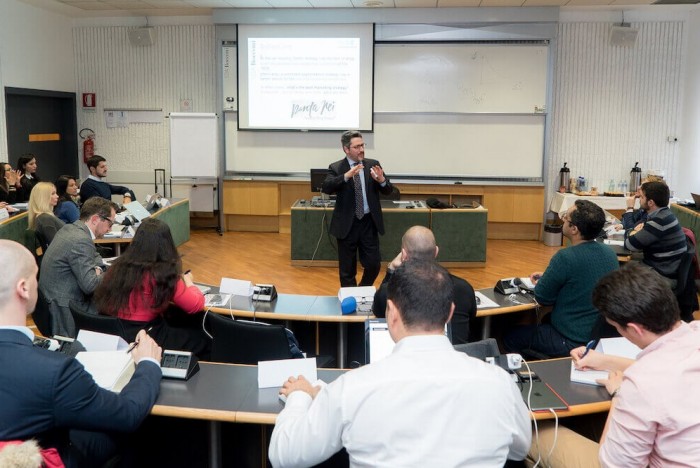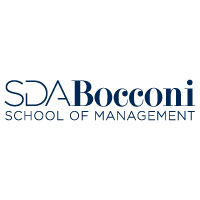But that combination, says Marco Aurelio Sisti—director of the Executive Master in Marketing & Sales (EMMS) at SDA Bocconi School of Management—is crucial when it comes to training the business leaders of the future.
Digitization, rapid change, the sharing of data, and more complex consumer and business customers’ journeys, have made the integration of marketing and sales processes key to success across organizations.
“It’s a matter of speed,” Marco Aurelio explains. “Customers are very quickly transforming their needs and purchasing process in a more digital way, and therefore are more demanding in their expectations towards suppliers.

“Companies need more sophisticated marketing and sales competences to better listen, understand, innovate, and propose the right value to the right customers.
“All this must happen more quickly than in the recent past. Across market analysis, value proposition, value selling and distribution, new and more fine-tuned managerial strategies are required.
“Companies need people who have a broader ‘commercial view’, at a marketing and a sales level, to anticipate changes, otherwise they risk to miss future market opportunities.”
It’s this need within organizations to change that encourages new cohorts of executive students onto the EMMS at Bocconi each year. Delivered in partnership with Spain’s ESADE Business School, the 13-month, part-time executive master’s program is running its 13th edition from January 2019.
Students include working professionals from marketing or sales departments—or other departments like HR, R&D, and accounting—from a variety of industries. Past participants have come from management consultancies, chemical companies, healthcare, retail, and big-name firms like BMW, General Electric, Microsoft, P&G, Philips, and SAP.
The Executive Master in Marketing & Sales costs €36,000 ($41,000), with Bocconi offering a 30% scholarship for outstanding international candidates. To get admitted, candidates need to be at least 27 years old. They need a university degree in any discipline, a minimum of four years’ work experience, and proof of proficiency in English.
The class average age is around 34. 55% of students are male; 45% female. In a typical class of 30, around 20 nationalities are represented. Students come from Asia and North and South America, Marco Aurelio says, to get a European perspective.
50% of the program is taught online through live sessions and lectures. The other 50% is delivered on-campus in Milan, Barcelona, and Madrid with week-long classes held every two months.
“Digitization has pushed suppliers to transform marketing and sales processes,” Marco Aurelio continues. “They need people who are not just able to talk products and pricing, but who know everything about channels, distributions, and sales force management. They need marketing managers to understand what’s happening in sales [and vice versa], and also how to fine-tune one to the other.
“So, we look for people passionate about both marketing and sales, who have an international scope, and are analytical, adaptive, and open-minded.”
Bocconi’s Executive Master in Marketing & Sales covers digitization with dedicated courses—Doing Digital Business, Digital Communication, and Digital Relationship Building—and by integrating the implications of digital disruption across the curriculum; a mixture of case studies, class discussions, and workshops.
In the last four months of the program, students apply the theories they’ve learned through field projects; challenged by companies to develop strategic analysis and marketing and sales plans, and to present their solutions to executives at the company itself.
“It’s real-life; not a simulation,” Marco Aurelio quips. Some student proposals, he says, have actually been implemented by the firms. Last year, students worked on two international projects for FC Barcelona, the soccer club, and chemicals company Colorificio San Marco.
Throughout the EMMS, top managers from high-profile companies present to students both online and on-campus. “We’ve recently had Luxottica, Hilti, Samsung, and Tesla,” says Marco Aurelio. “A couple of days ago we had Vodafone.”
For Marco Aurelio, the feedback from employers is clear. Marketing and sales departments are becoming more and more integrated. Sales and marketing professionals are being made to work more closely together and support for career growth and to build competencies across both functions is increasing.
“This is exactly what companies are looking for,” Marco Aurelio concludes. “It’s not about understanding marketing or sales, but both.”








